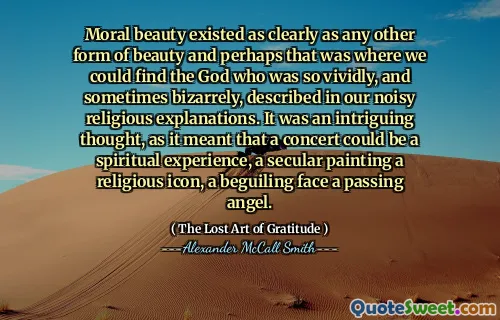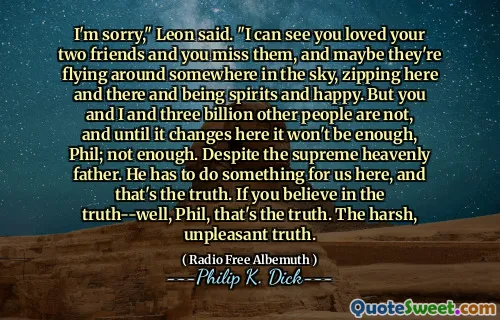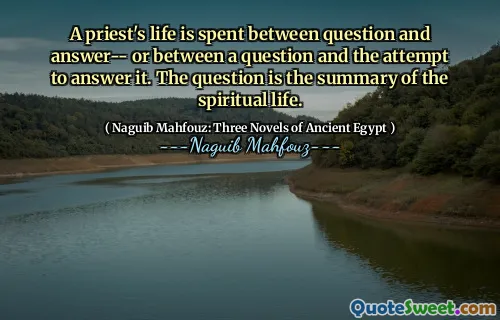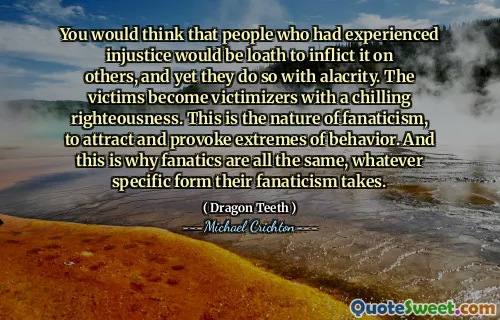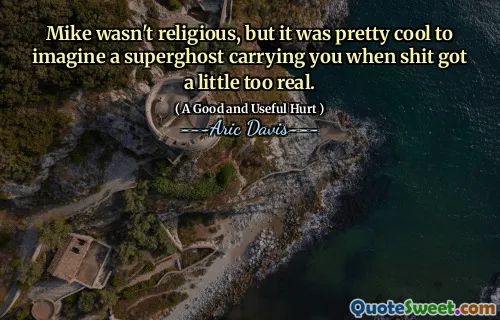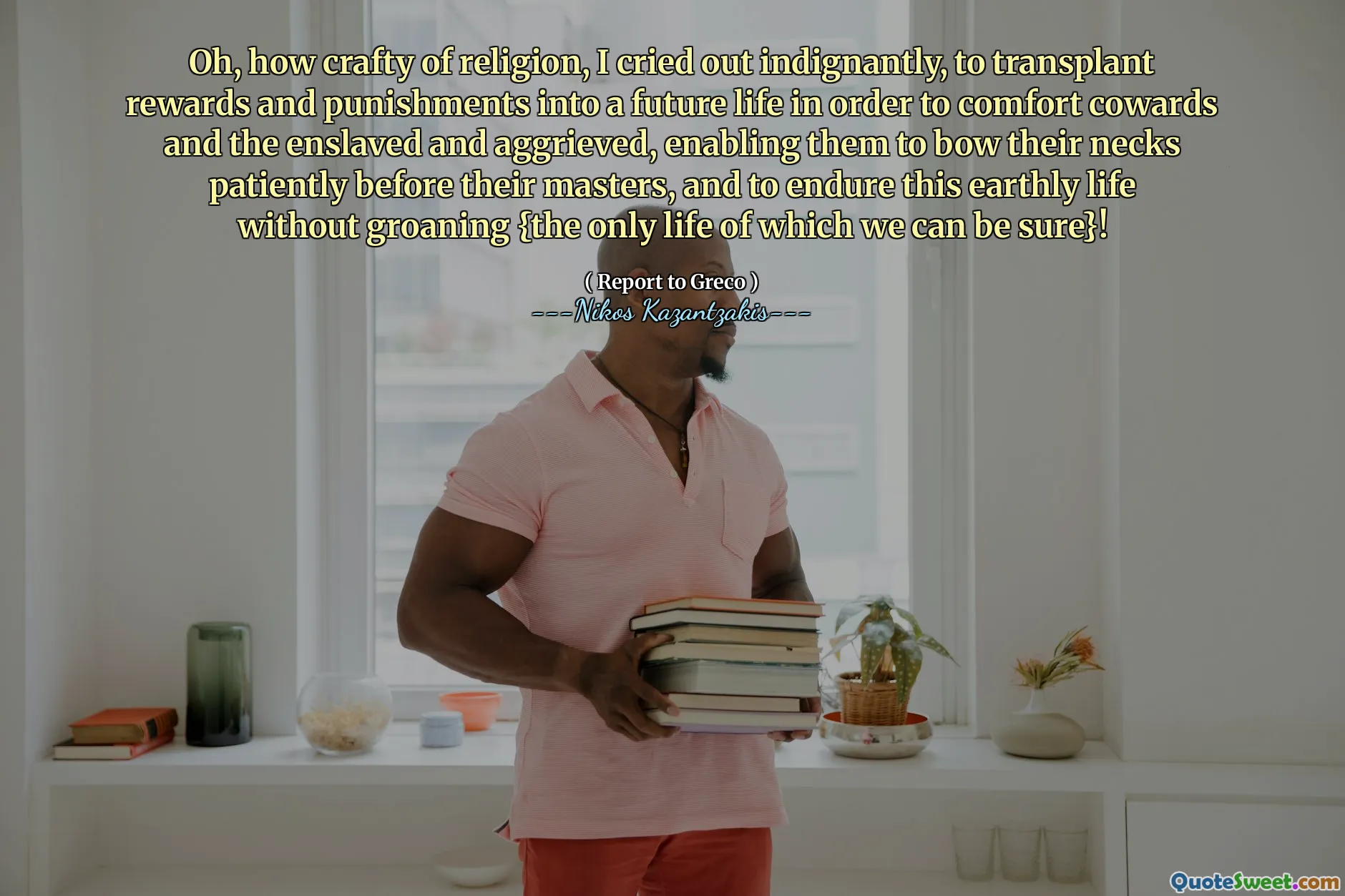
Oh, how crafty of religion, I cried out indignantly, to transplant rewards and punishments into a future life in order to comfort cowards and the enslaved and aggrieved, enabling them to bow their necks patiently before their masters, and to endure this earthly life without groaning {the only life of which we can be sure}!
The quote presents a provocative critique of religious institutions, highlighting their use of promises of rewards and punishments in an imagined afterlife as a means to manipulate and soothe individuals facing the hardships of worldly existence. It suggests that such teachings serve to pacify the oppressed, giving them hope that their suffering will be compensated elsewhere, thus discouraging active resistance or dissatisfaction with their lot. This perspective invites reflection on the role of religion in human societies: does it provide comfort and moral guidance, or does it also facilitate conformity and complacency among the powerless?
The notion that the only life we can be sure of is the one we presently live emphasizes the importance of appreciating and making the most of our earthly existence. It challenges the idea of placing ultimate value in a hypothetical afterlife, urging instead for an awareness of our current reality and the responsibilities we bear within it. While some might see this stance as promoting secularism or materialism, the underlying message can be viewed as a call for authenticity and engagement with the tangible world.
Moreover, the quote raises questions about the ethics of using hope based on future rewards to control behavior. Is comfort through illusion a moral justification for withholding truth? Or does it reflect a human tendency to seek solace in the face of suffering? Ultimately, it underscores the complex relationship between faith, power, comfort, and the human quest for meaning, urging us to critically examine the foundations of religious authority and the motivations behind its teachings.
— Nikos Kazantzakis (Report to Greco)

